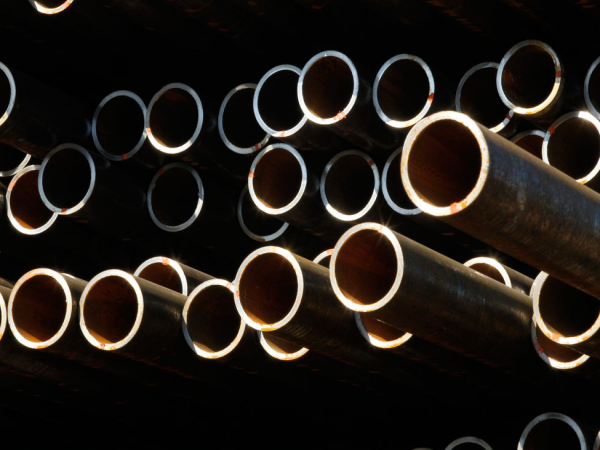What are the grades of
OCTG casing?
Oil Country Tubing Goods (OCTG) is a family of steel tubing used in oil and gas exploration and production. OCTG casing serves as a structural component of a well’s structure. It helps maintain the integrity of the wellbore and helps to keep out formation fluids, like water and gas. OCTG casing is also important for cementing wells and preventing pressure build-up from within the well. As such, choosing the right grade of OCTG casing is vital for the successful and safe operation of an oil and gas well.
Grades of OCTG Casing
OCTG casing is manufactured in various grades, each with its own unique characteristics, in order to meet the needs of specific applications. Common grades of OCTG casing include API J55, API K55, API L80, API N80, API P110, API Q125, API S135 and API V150. Let’s look at these grades in more detail.

API J55
API J55
casing pipe is a general-purpose grade that is the most commonly used grade for oil and gas wells. It is known for its affordability and versatile nature. It is usually selected when cost is the main consideration. J55 casing has relatively low yield and tensile strength properties, ranging from 73,000 psi to 92,000 psi respectively. It is often used in shallow wells that require only modest pressure containment or when there is little risk of hydrogen sulfide corrosion.
API K55
K55 casing is slightly stronger than J55 and is classified as a medium-strength grade. It is best suited for use in shallow wells with less stringent containment and corrosion requirements. It is also more durable and can withstand greater pressure than J55. It has an average yield strength of 82,000 psi and an average tensile strength of 110,000 psi. It is often used in onshore wells requiring medium tensile and yield strength.
API L80
L80 casing is a higher-strength grade than J55 and K55. It combines good strength and toughness in one grade. It is particularly suited for sour service operations and is often used offshore. It has an average yield strength of 83,500 psi and an average tensile strength of 95,000 psi. It provides superior corrosion resistance, making it ideal for deeper wells with higher pressure loads.
API N80
N80 casing is a higher grade than L80 and offers superior strength and performance in depths of up to 20,000 ft. It is most commonly used offshore and has an average yield strength of 85,000 psi and an average tensile strength of 100,000 psi. It provides superior protection against corrosion making it an ideal choice for deep, high-pressure wells.
API P110
P110 casing is the highest grade of OCTG casing available. It combines exceptional strength and ductility, with an average yield strength of 105,000 psi and an average tensile strength of 125,000 psi. It is most commonly used offshore and is suitable for depths of up to 30,000 ft. It is also highly resistant to corrosion and offers superior pressure containment capabilities.
API Q125
Q125 casing is a premium-grade product with exceptional strength and ductility. It is often selected for demanding applications, such as extreme depths and high pressures. It has an average yield strength of 115,000 psi and an average tensile strength of 140,000 psi. It is most commonly used in offshore wells, but can also be found in some onshore wells.
API S135
S135 casing is the preferred material for extreme-depth applications, such as ultra-deepwater wells. It is known for its superior strength and ductility and is able to withstand extremely high pressures. It has an average yield strength of 125,000 psi and an average tensile strength of 155,000 psi. It is also highly resistant to corrosion and is therefore ideal for the most extreme conditions.
API V150
V150 casing is the strongest grade of OCTG casing available. It has an average yield strength of 135,000 psi and an average tensile strength of 165,000 psi. It is designed to withstand the highest pressures and depths, and is most often used in ultra-deepwater wells. Its superior strength and durability make it an excellent choice for challenging drilling operations.
Conclusion
By understanding the grades of OCTG casing available, you will be able to make an educated decision when selecting a grade of casing for your well. Selecting the wrong grade for a project can lead to problems down the line, so think carefully about the needs of your well and select the grade that is best suited for your application.
Read more: What is OCTG Casing? or The causes of OCTG casing stuck













 Eastern Steel Manufacturing Co.,Ltd not only improve product production and sales services, but also provide additional value-added services. As long as you need, we can complete your specific needs together.
Eastern Steel Manufacturing Co.,Ltd not only improve product production and sales services, but also provide additional value-added services. As long as you need, we can complete your specific needs together.










